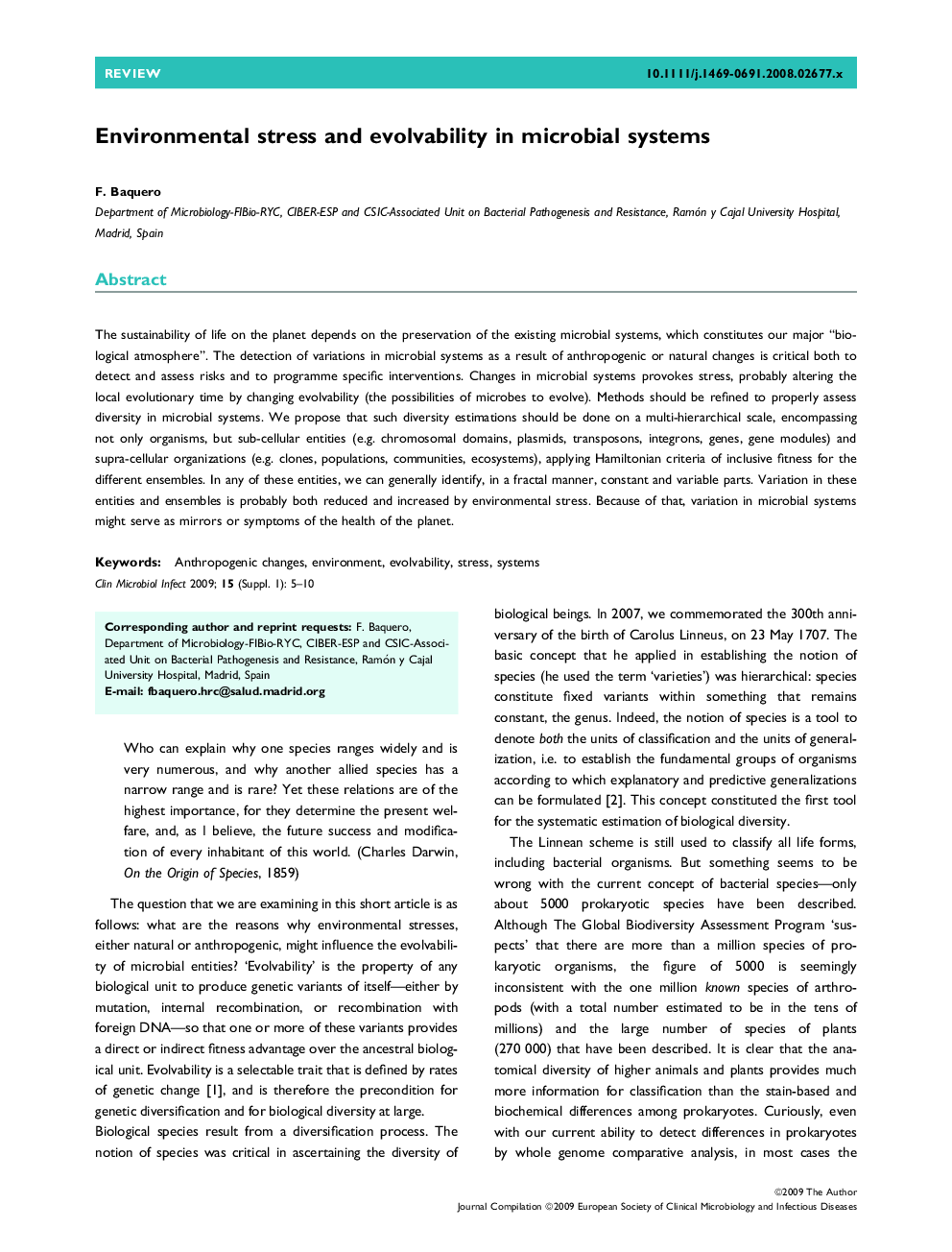| Article ID | Journal | Published Year | Pages | File Type |
|---|---|---|---|---|
| 3397805 | Clinical Microbiology and Infection | 2009 | 6 Pages |
The sustainability of life on the planet depends on the preservation of the existing microbial systems, which constitutes our major “biological atmosphere”. The detection of variations in microbial systems as a result of anthropogenic or natural changes is critical both to detect and assess risks and to programme specific interventions. Changes in microbial systems provokes stress, probably altering the local evolutionary time by changing evolvability (the possibilities of microbes to evolve). Methods should be refined to properly assess diversity in microbial systems. We propose that such diversity estimations should be done on a multi-hierarchical scale, encompassing not only organisms, but sub-cellular entities (e.g. chromosomal domains, plasmids, transposons, integrons, genes, gene modules) and supra-cellular organizations (e.g. clones, populations, communities, ecosystems), applying Hamiltonian criteria of inclusive fitness for the different ensembles. In any of these entities, we can generally identify, in a fractal manner, constant and variable parts. Variation in these entities and ensembles is probably both reduced and increased by environmental stress. Because of that, variation in microbial systems might serve as mirrors or symptoms of the health of the planet.
